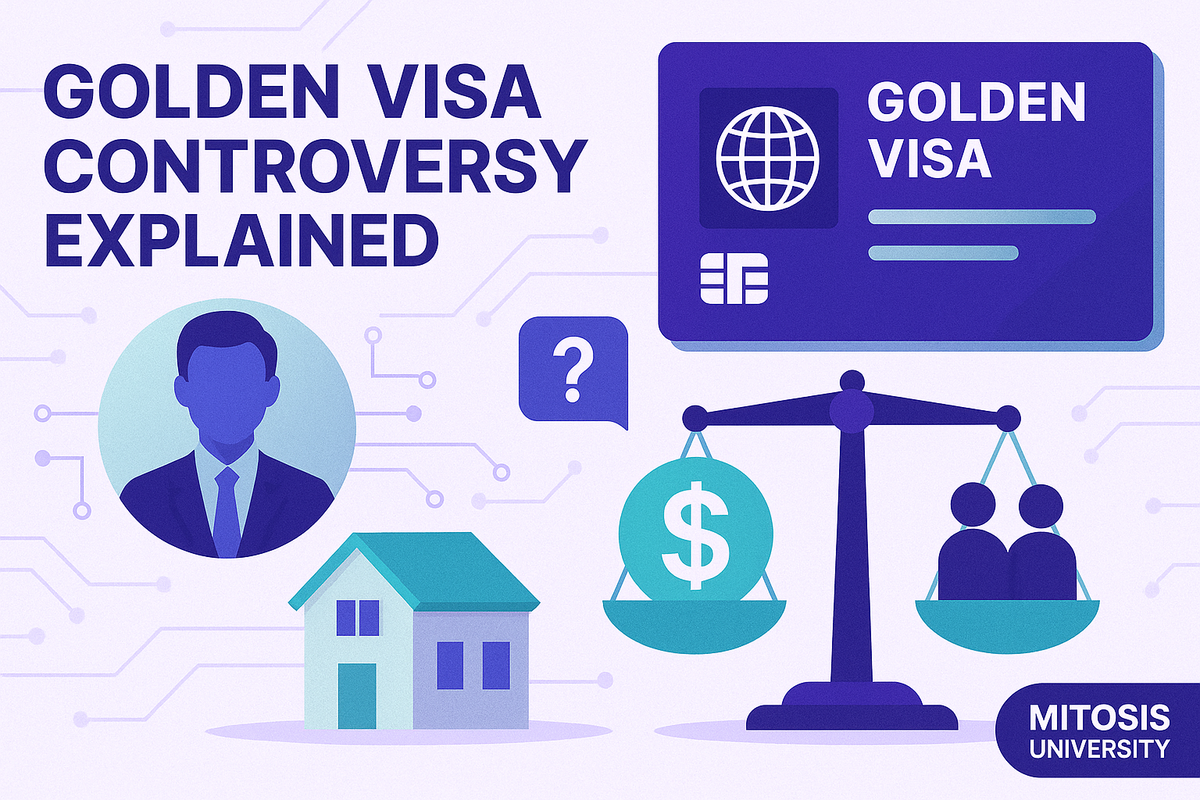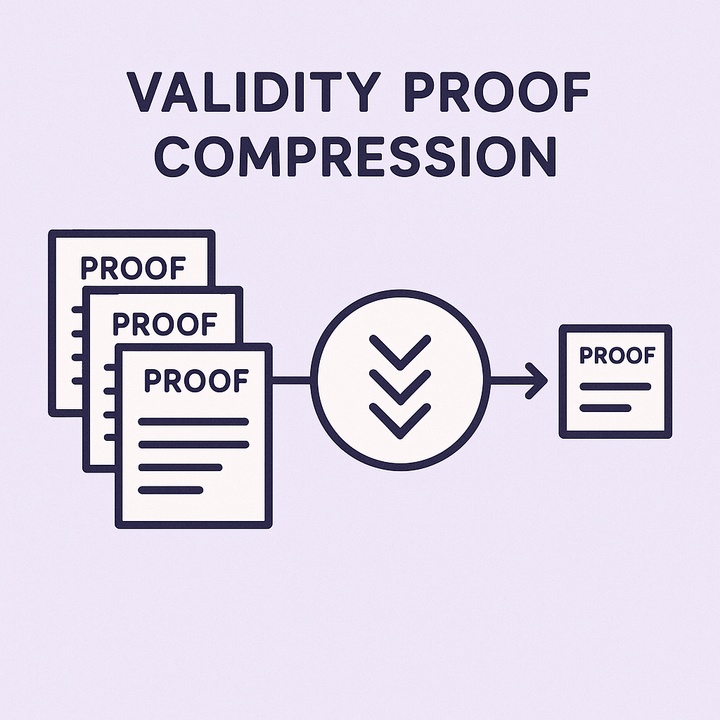Tokenized Residency or Misguided Hype? The TON Golden Visa Controversy Explained

Can staking crypto earn you a residency visa? That was the provocative claim behind the TON Foundation’s July 2025 announcement—a supposed game-changer in the world of crypto migration. Promising a 10-year UAE Golden Visa in exchange for staking Toncoin, the offer immediately captured attention across the blockchain community.
But within 24 hours, the initiative was publicly discredited by UAE authorities, who not only denied any such program but also clarified that TON is neither licensed nor recognized by their regulatory bodies.
This article unpacks the controversy in full: what the TON Foundation claimed, how the UAE government responded, and what this reveals about the limits of integrating decentralized finance into national immigration policies. Readers will come away with a clearer understanding of the legal, regulatory, and reputational landmines involved in merging crypto assets with real-world residency benefits.
The Rise—and Fall—of the TON Golden Visa Proposal
A Bold Announcement with Lofty Promises
On July 6, 2025, the TON Foundation—best known for its ties to Telegram—announced a novel visa initiative: stake $100,000 in Toncoin for three years, pay a $35,000 fee, and receive a UAE 10-year Golden Visa. The program’s design was tailored to attract crypto investors seeking flexible, cost-efficient alternatives to traditional residency pathways.
Key features of the proposal included:
- Asset Control: Investors retained control of their staked tokens through a smart contract.
- Annual Yield: Promised 3–4% APY on staked assets.
- Family Coverage: Spouses, children, and parents were reportedly included at no extra cost.
- Fast Processing: Visa issuance within seven weeks.
- Lower Entry Barrier: A fraction of the $500,000+ typically required for real estate-based visas.
The announcement, amplified by Telegram CEO Pavel Durov, ignited a surge of interest—and briefly lifted Toncoin’s market value by over 10%.
UAE Authorities Push Back—Hard
The euphoria didn’t last. On July 7, 2025, the UAE government issued a joint statement via the Federal Authority for Identity and Citizenship (ICP), the Securities and Commodities Authority (SCA), and the Virtual Assets Regulatory Authority (VARA), firmly rejecting the TON proposal.
Key clarifications from the UAE:
- Digital assets are not an eligible investment category for the Golden Visa.
- TON is not licensed or regulated by VARA.
- Golden Visas are only issued under specific categories, including real estate investors, entrepreneurs, and outstanding talents—not crypto holders.
The statement not only dismantled the legitimacy of the TON initiative but also served as a broader warning: any residency pathway involving digital assets must conform to strict legal and regulatory standards.
Following this, TON retracted its earlier claims, calling the initiative an “exploratory collaboration” rather than an official partnership—an admission that further damaged its credibility.
Lessons from a Regulatory Meltdown
Crypto Meets National Sovereignty—And Loses
The incident revealed a fundamental clash: the fast-paced ethos of blockchain innovation versus the slow, deliberate processes of national immigration policy. The idea of tokenized residency—leveraging digital assets to unlock real-world immigration benefits—is not inherently flawed. But without government endorsement, regulatory clarity, and proper licensing, such initiatives are destined to fail.
The UAE's response showed that:
- Sovereign nations will assert firm control over immigration frameworks.
- Crypto companies cannot use unverified claims to shortcut regulatory processes.
- Hype-driven announcements without due diligence risk legal and reputational backlash.
TON’s missteps illustrate these risks vividly. The price of Toncoin dropped over 6% following the government's denial. Public sentiment turned negative, and the project faced accusations of market manipulation or gross negligence in communications strategy.
Global Comparison: Where Crypto-Residency Actually Works
The TON model attempted something different: direct staking of crypto assets as a basis for visa issuance. But most countries with crypto-friendly residency or citizenship programs follow a more cautious model:
| Country | Investment Type | Crypto Method | Notes |
|---|---|---|---|
| Vanuatu | Donation to government funds | Crypto accepted, converted to fiat | Offers visa-free access to 130+ countries |
| Dominica | Donation or real estate | Crypto as source, fiat investment | Emphasizes KYC/AML and proof of asset legitimacy |
| Portugal | Real estate or capital transfer | Crypto-to-fiat conversion accepted | Visa after $500,000+ investment, not direct crypto-based |
| TON (Proposed) | Staking Toncoin on a smart contract | Direct staking, retained control | Rejected by UAE; lacked government approval and licensing |
Even in crypto-progressive nations, investment is typically converted to fiat or channeled through government-approved instruments. TON’s idea of decentralized staking as a residency pathway was innovative—but regulatory realities weren’t on its side.
Conclusion
Key Takeaways
- Official Endorsement is Non-Negotiable: Any crypto initiative offering real-world legal benefits must receive explicit government approval before launching.
- Licensing and Compliance Matter: Operating without regulatory approval, as TON did in the UAE, invites swift rejection and reputational fallout.
- Marketing Must Be Grounded in Reality: Public announcements involving government partnerships must be accurate, vetted, and legally sound.
Practical Advice for Stakeholders
- For Projects: Establish rigorous internal governance, secure proper licensing, and verify all claims with government entities before publicizing.
- For Investors: Conduct due diligence using official government channels—don’t rely solely on crypto influencers or project websites.
- For Governments: Consider regulatory sandboxes to test blockchain integrations, but maintain firm control over immigration criteria.
Looking Ahead
The concept of tokenized residency isn’t dead—just premature. The TON controversy might discourage others in the short term, but it also provides a roadmap for doing it right. Future success in this space will require coordinated innovation, compliance-first design, and transparent collaboration between crypto platforms and sovereign governments.
Can blockchain eventually transform global migration? Possibly—but only if it plays by the rules.

Comments ()